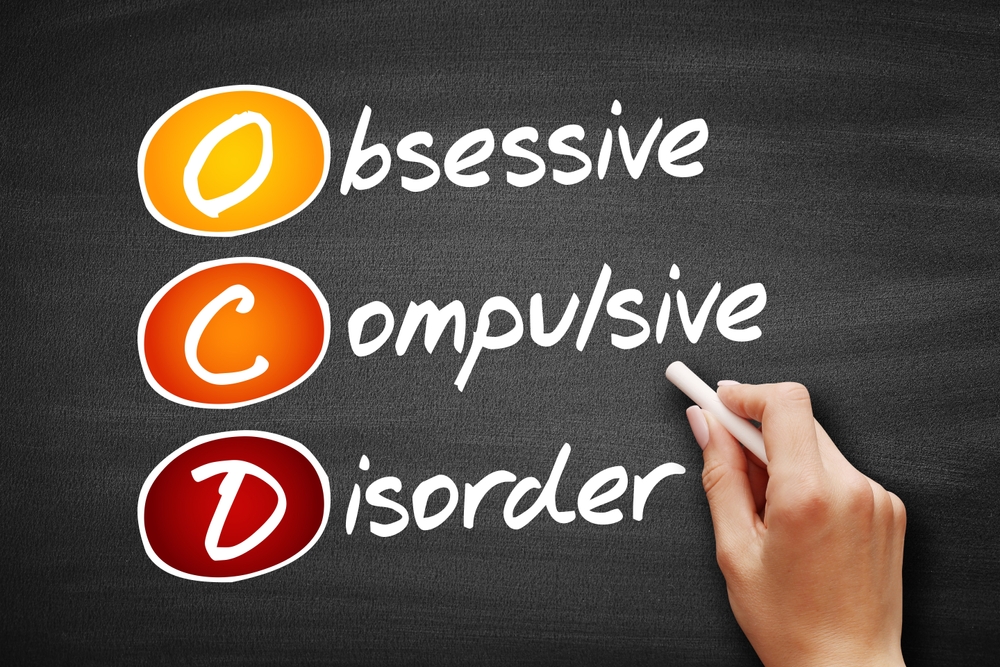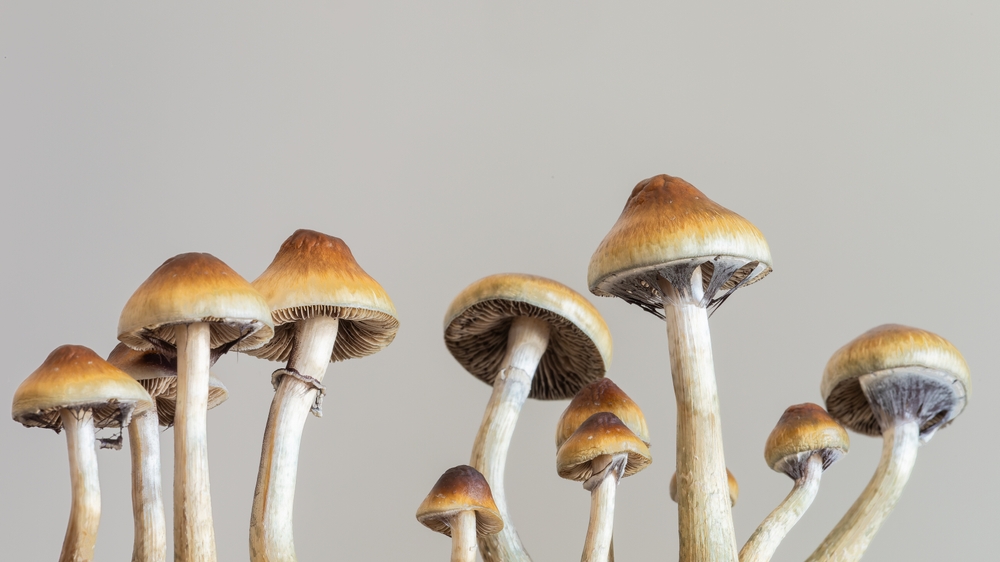Your cart is currently empty!
Can Psychedelics Help Cure OCD?

Obsessive-Compulsive Disorder (OCD) affects millions of people worldwide, many of whom struggle to find effective treatments. Despite the availability of medications and therapies like Cognitive Behavioral Therapy (CBT), a significant portion of individuals with OCD do not experience relief from their symptoms. In fact, studies show that nearly half of OCD patients remain treatment-resistant, leaving them to cope with distressing obsessions and compulsions. However, a groundbreaking new study is shedding light on an unconventional treatment option: psychedelics. These mind-altering substances may offer hope for those who haven’t responded to traditional therapies, opening new possibilities for managing OCD and improving quality of life.
In recent years, psychedelics have been gaining attention not only in the realm of spiritual experiences but also in the medical field. Substances like psilocybin (found in magic mushrooms) and LSD, once dismissed as dangerous or purely recreational, are now being studied for their potential to treat various mental health conditions. For OCD, a disorder characterized by relentless intrusive thoughts and repetitive behaviors, the ability of psychedelics to alter rigid thought patterns is particularly intriguing. With promising early results from research, there’s growing optimism that psychedelics could revolutionize how we understand and treat OCD, offering a lifeline to those for whom conventional treatments have failed.

What is OCD?
Obsessive-Compulsive Disorder (OCD) is a mental health condition marked by persistent, intrusive thoughts (obsessions) and repetitive behaviors or mental acts (compulsions) that individuals feel compelled to perform. These obsessions can range from a fear of contamination or germs, to irrational fears about harm or catastrophe. For example, a person with OCD might have overwhelming thoughts that their house will catch fire if they don’t check the stove repeatedly. The compulsions are attempts to reduce the anxiety caused by these obsessions, but they often become a source of distress themselves. Whether it’s washing hands excessively or arranging objects in a precise order, the cycle of obsessions and compulsions can consume a person’s time and energy.
OCD is more than just wanting things to be neat or organized; it’s a debilitating disorder that interferes with daily life, work, and relationships. People with OCD often realize their thoughts and actions are irrational, but feel powerless to stop them. While some people experience more mild symptoms, others may be so deeply affected that they struggle to leave their homes or maintain a normal routine. OCD typically falls into several categories, including contamination fears, harm-checking, extreme perfectionism, the need for symmetry, and hoarding behaviors. Left untreated, it can cause significant emotional distress and impair overall functioning.
What makes OCD particularly challenging is the intensity of anxiety that accompanies the obsessions. These intrusive thoughts often feel uncontrollable, and no matter how hard a person tries to ignore or dismiss them, the anxiety keeps returning. Compulsions, while seemingly offering a temporary sense of relief, reinforce the disorder by creating a cycle that’s difficult to break. Over time, these behaviors can escalate, consuming more time and leading to isolation as individuals struggle to manage their symptoms privately. For many, the disorder isn’t just an inconvenience—it’s a daily battle that can severely diminish quality of life, making effective treatment crucial.
Current OCD Treatments and Their Limitations
The traditional approach to treating Obsessive-Compulsive Disorder typically involves a combination of medication and psychotherapy. Selective serotonin reuptake inhibitors (SSRIs), like fluoxetine or sertraline, are often the first line of defense, as they work to increase serotonin levels in the brain, which is thought to play a role in regulating mood and anxiety. Cognitive Behavioral Therapy (CBT), particularly a specialized form known as Exposure and Response Prevention (ERP), is also widely used. ERP involves exposing patients to their triggers in a controlled way while preventing them from engaging in compulsions. Over time, this helps reduce the anxiety associated with the obsession.
While these treatments are effective for many, they fall short for a significant number of patients. Up to 50% of people with OCD do not respond adequately to SSRIs or CBT alone. SSRIs can come with side effects like weight gain, fatigue, or sexual dysfunction, which can make adherence difficult. Furthermore, medications often take weeks or even months to show any results, and even then, the improvements might be modest. CBT, while effective, requires intense participation and can be emotionally exhausting for patients, leading some to drop out of treatment before seeing progress.
For those with treatment-resistant OCD, this leaves them in a frustrating and distressing position, often bouncing between different medications or therapy approaches without relief. The need for new, effective treatments has never been more urgent, which is where psychedelics might come into play, offering hope where conventional methods have failed.

Current OCD Treatments and Their Limitations
The traditional approach to treating Obsessive-Compulsive Disorder typically involves a combination of medication and psychotherapy. Selective serotonin reuptake inhibitors (SSRIs), like fluoxetine or sertraline, are often the first line of defense, as they work to increase serotonin levels in the brain, which is thought to play a role in regulating mood and anxiety. Cognitive Behavioral Therapy (CBT), particularly a specialized form known as Exposure and Response Prevention (ERP), is also widely used. ERP involves exposing patients to their triggers in a controlled way while preventing them from engaging in compulsions. Over time, this helps reduce the anxiety associated with the obsession.
While these treatments are effective for many, they fall short for a significant number of patients. Up to 50% of people with OCD do not respond adequately to SSRIs or CBT alone. SSRIs can come with side effects like weight gain, fatigue, or sexual dysfunction, which can make adherence difficult. Furthermore, medications often take weeks or even months to show any results, and even then, the improvements might be modest. CBT, while effective, requires intense participation and can be emotionally exhausting for patients, leading some to drop out of treatment before seeing progress.
For those with treatment-resistant OCD, this leaves them in a frustrating and distressing position, often bouncing between different medications or therapy approaches without relief. The need for new, effective treatments has never been more urgent, which is where psychedelics might come into play, offering hope where conventional methods have failed.
Psychedelics: A New Hope for OCD?
The potential of psychedelics to revolutionize mental health treatment is not entirely new, but recent studies have reignited interest in their therapeutic applications, particularly for conditions like Obsessive-Compulsive Disorder (OCD). Historically, substances such as LSD and psilocybin were explored in the mid-20th century for their psychological benefits before becoming stigmatized and restricted. Today, a resurgence in scientific research is uncovering the profound ways these compounds can influence mental health.
A groundbreaking study recently conducted aimed to explore the efficacy of psychedelics in treating OCD. This study involved nine participants who had been clinically diagnosed with OCD and had not responded to traditional treatment methods, including SSRIs and Cognitive Behavioral Therapy (CBT). Each participant was administered a single dose of a psychedelic agent once a week for four weeks. Researchers closely monitored the participants’ responses during the initial eight hours post-dose and conducted overnight observations to assess immediate and short-term effects.
The results of the study were promising. Almost immediately after taking the psychedelic agents, participants reported a significant reduction in OCD symptoms. This relief persisted well beyond the 24-hour mark, suggesting that psychedelics may offer not just temporary alleviation but potentially long-lasting benefits for those suffering from OCD. Notably, the study found that there was no minimum dosage required to achieve these positive effects, indicating a wide therapeutic window for effective treatment.
However, the study was not without its challenges. One participant experienced a mild side effect of increased blood pressure, underscoring the importance of establishing safe dosage guidelines and monitoring protocols. This side effect highlights the need for further research to ensure that psychedelic treatments can be administered safely, minimizing potential risks while maximizing therapeutic benefits.
The significance of these findings cannot be overstated. For individuals with treatment-resistant OCD, the introduction of psychedelics as a viable treatment option could be life-changing. The rapid and sustained relief from symptoms offers a new avenue for managing a disorder that has long been difficult to treat effectively. As the scientific community continues to investigate the mechanisms by which psychedelics alleviate OCD symptoms, the hope is that these substances can be integrated into broader mental health treatment strategies, providing relief to those who have struggled for years without success.
How Psychedelics May Work for OCD
Psychedelics are believed to exert their therapeutic effects through several mechanisms that can be particularly beneficial for individuals with OCD. One of the primary ways psychedelics may help is by promoting neuroplasticity—the brain’s ability to reorganize itself by forming new neural connections. This increased plasticity can help disrupt rigid thought patterns that are characteristic of OCD, allowing individuals to develop more flexible and adaptive ways of thinking.
Additionally, psychedelics influence serotonin receptors in the brain, particularly the 5-HT2A receptor, which plays a significant role in mood regulation and anxiety. By modulating these receptors, psychedelics can reduce the intensity of obsessive thoughts and the compulsive behaviors that follow. This biochemical impact can lead to a decrease in the overall anxiety levels that drive the OCD cycle.
Another crucial aspect of how psychedelics may aid in treating OCD is their ability to facilitate profound psychological experiences that can help individuals confront and process underlying trauma. Many cases of OCD are linked to past traumatic events or deep-seated fears, and psychedelics can provide a safe space for individuals to explore these issues. Through guided psychedelic-assisted therapy, patients can gain insights into their obsessions and compulsions, addressing the root causes rather than just the symptoms.
Moreover, the mystical or transcendent experiences often reported during psychedelic sessions can foster a sense of interconnectedness and meaning, which may help individuals break free from the isolation and repetitive thought patterns that exacerbate OCD. By shifting perspectives and encouraging a more holistic view of oneself and one’s environment, psychedelics can support long-term behavioral and cognitive changes.
Combining Psychedelics with Therapy
The integration of psychedelics with traditional therapeutic approaches holds significant promise for enhancing treatment outcomes for OCD. Psychedelic-assisted therapy combines the pharmacological effects of psychedelics with the structured support of psychotherapy, creating a synergistic effect that can amplify the benefits of both modalities.
In this approach, the psychedelic experience is carefully guided by a trained therapist who helps the patient navigate their thoughts and emotions during the session. This support is crucial for ensuring that the experience is both safe and therapeutically effective. After the psychedelic session, ongoing therapy sessions allow patients to process their experiences, integrate new insights, and develop strategies to maintain the progress achieved during the psychedelic treatment.
Research has shown that combining psychedelics with therapy can lead to more profound and lasting changes compared to either treatment alone. For individuals with OCD, this means not only experiencing immediate relief from symptoms but also developing the tools and understanding necessary to prevent relapse and maintain mental health in the long term. Therapists are increasingly exploring how to best incorporate psychedelics into their practice, tailoring treatment plans to meet the unique needs of each patient.
Moreover, the collaborative nature of psychedelic-assisted therapy fosters a strong therapeutic alliance between the patient and therapist. This relationship is essential for creating a safe and supportive environment where patients feel comfortable exploring their deepest fears and anxieties. The enhanced self-awareness and emotional openness facilitated by psychedelics can make therapy sessions more effective, accelerating the healing process.
The Future of Psychedelics in Mental Health Treatment
The promising results from recent studies on psychedelics and OCD are just the beginning of what could be a transformative shift in mental health treatment. Ongoing research and clinical trials are expanding our understanding of how various psychedelic substances—such as ketamine, MDMA, and psilocybin—can be utilized to treat a range of mental health conditions, including depression, PTSD, and anxiety disorders.
As the body of evidence supporting the efficacy of psychedelics grows, there is a movement towards re-evaluating their legal status and regulatory frameworks. Countries like the United States, Canada, and several European nations are witnessing changes in policy that allow for more extensive research and, in some cases, the medical use of psychedelics under controlled conditions. This shift is paving the way for greater accessibility to psychedelic treatments, ensuring that those who could benefit from them have the opportunity to do so safely.
However, the future of psychedelics in mental health treatment also depends on overcoming significant challenges. These include establishing standardized treatment protocols, ensuring the safety and quality of psychedelic substances, and addressing societal stigma associated with their use. Additionally, there is a need for comprehensive training programs for healthcare professionals to effectively administer psychedelic-assisted therapies.
Looking ahead, the integration of psychedelics into mainstream mental health care has the potential to offer more personalized and effective treatment options. By addressing the underlying causes of disorders like OCD and fostering long-term psychological resilience, psychedelics could play a crucial role in improving mental health outcomes globally. Continued investment in research, education, and policy reform will be essential to realizing the full potential of psychedelics as a cornerstone of modern mental health treatment.
